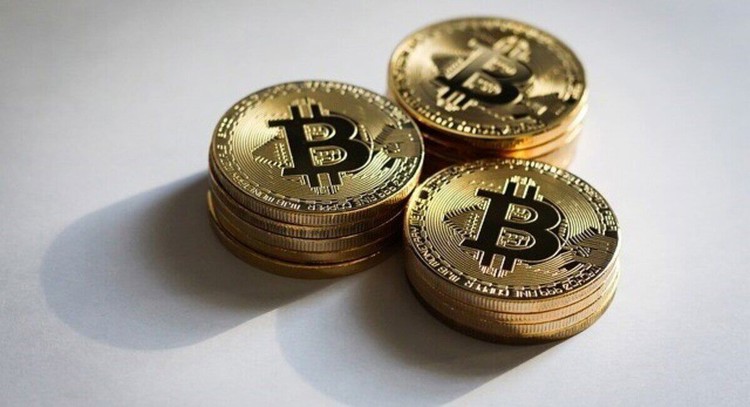Understanding the Potential Risks and Rewards of Crypto Gambling in 2024

Although crypto gambling is not as popular as traditional gambling, it is a growing trend that could enjoy more adoption among gamblers in 2024. So far, there has been a recorded increase in crypto gambling as people gradually understand the perks of wagering with digital assets like Bitcoin or Ethereum, over fiat. For instance, studies have shown that the number of crypto bets more than doubled between Q1 and Q2 of 2022. Stats also show that crypto gamblers spent nearly $3 billion in bets in the first half of 2022. By the second half, this total had more than doubled to $6.3 billion.
The Attraction and Rewards of Crypto Gambling
People who understand the advantages of cryptocurrencies are quickly sold on crypto gambling. The intersection between crypto and gambling shows that cryptocurrency can bring many of the benefits it offers other sectors, like finance, into the world of casinos. There are several reasons why gambling with crypto is attractive to players, especially those with experience playing at online or land-based casinos. The following are a few interesting attractions:
- Global Reach: Online casinos can reach audiences worldwide regardless of geographical location because crypto is borderless. Instead of worrying about regulatory restrictions plaguing fiat transfers or deposits, gamblers can easily enjoy games on crypto casinos by depositing supported assets to the operator’s wallet.
- Fast and Cheap Transactions: Crypto transactions are instantaneous, settling much faster than traditional fiat transactions. In addition, since there are no middlemen to process transactions, players pay minimal fees.
- Privacy and Anonymity: Crypto casinos usually do not enforce know-your-customer (KYC) regulations and typically allow players to gamble without personal information. Furthermore, blockchain transactions are generally anonymous, providing players with an extra layer of privacy.
- Fairness: In addition to the transparency and security offered by blockchain technology, crypto gambling employs Provably Fair technology, which ensures fairness during gameplay. With this technology, all players can verify and confirm that the outcomes of games are fairly decided.
Gambling with crypto offers several other rewards besides the attractions described above. For instance, a few games in crypto casinos employ the play-to-earn (P2E) model. This model, exclusive to the crypto sector, offers players some earnings on specific games depending on milestones achieved.
Navigating the Risks of Crypto Gambling in 2024
Although there are many reasons for players to consider crypto gambling over traditional gameplay, it is essential to note the ever-present risks. Unfortunately, the anonymity of cryptocurrency transactions and their decentralized nature make them easily exploited by illicit players. Criminals can easily launder money through crypto casinos that may be none the wiser about the source or use of these funds. Since these transactions are anonymous, crypto casinos and players may unintentionally contribute to the proliferation of illegal activity.
Players must also be aware of crypto’s volatility. The value of digital assets can be very unstable, rising and falling sharply within a few minutes or hours in some cases. While a sharp spike in value could be advantageous to investors, the situation may be detrimental to the financial stability of players, and the credibility of crypto gambling in general. People who do not have extensive crypto experience may be unwilling to continue with crypto gambling if assets keep losing value.
One major risk to crypto gambling in 2024 is regulatory uncertainty. Although the crypto market is gradually becoming more popular, with adoption levels increasing, regulations are still uncertain worldwide. Currently, many countries and jurisdictions are working hard at creating robust rules for the crypto industry, to sanitize the sector and protect consumers. However, these regulations may differ significantly between regions, creating disunity and incoherence in the global crypto gambling sector.
There also is the worry that regulations, when enforced, could be needlessly harsh on crypto. If this happens, the crypto gambling sector could suffer serious consequences, including reduced patronage and a high entry barrier. The inclusive nature of crypto gambling could be easily erased if the regulations introduced are not accommodating.
Conclusion: The Road Ahead for Crypto Gambling
Gambling with crypto has tremendous potential for growth, as nearly all predictions are very optimistic. In addition to a larger volume of crypto bets, analysts predict that decentralized finance (DeFi) protocols will use smart contracts to enable features like automated payouts and trustless betting in crypto gambling.
Furthermore, 2024 will likely see non-fungible tokens (NFTs) used to represent several items and assets become more widespread in crypto gambling. In addition, online casinos could offer cross-chain gambling, allowing users to move assets across multiple blockchains. Either way, the future of crypto gambling requires collective effort from all stakeholders, including operators, players, and regulators.



































